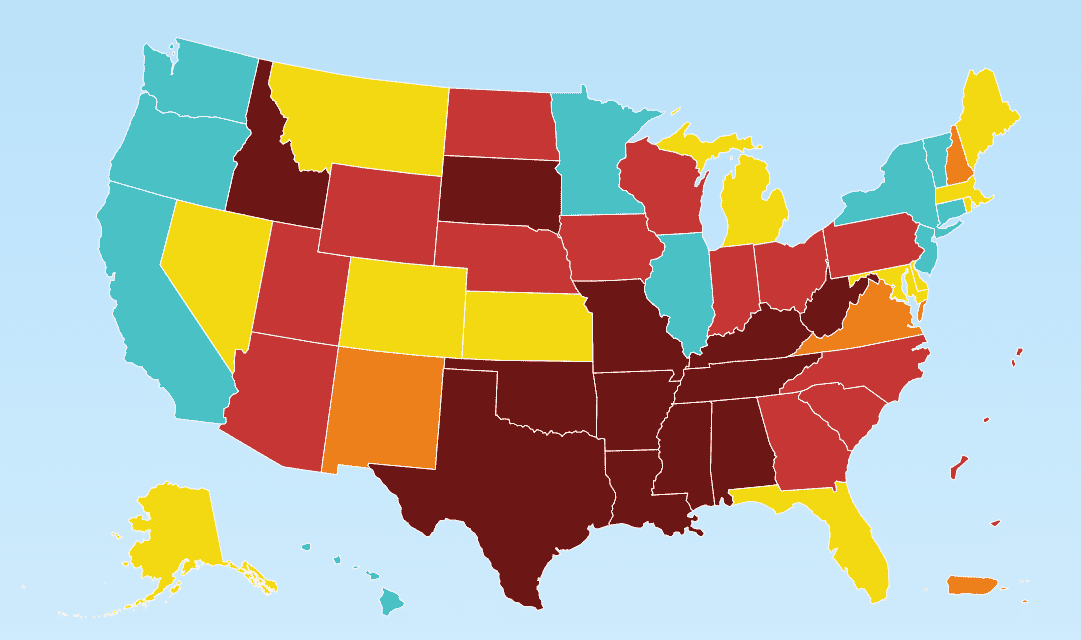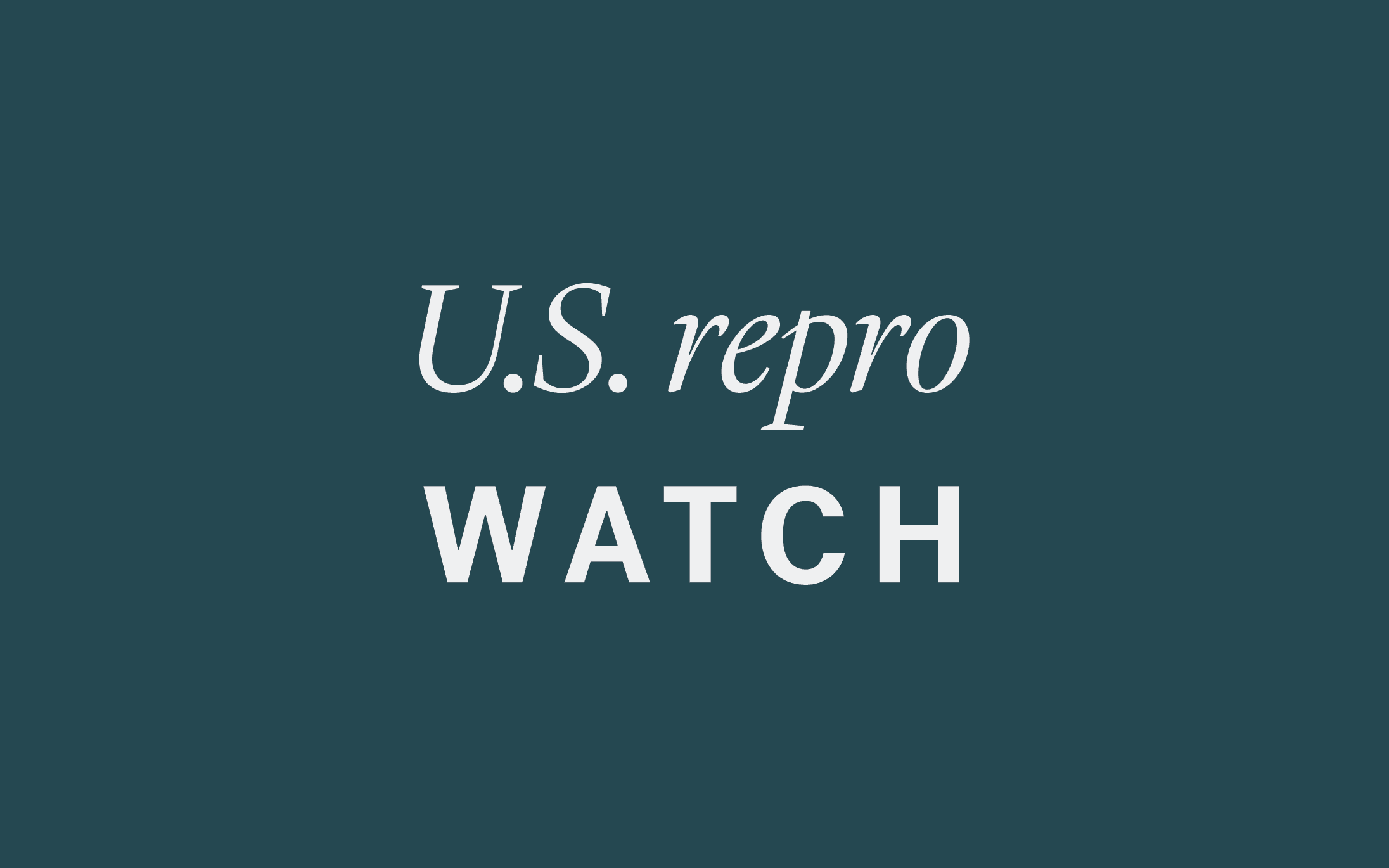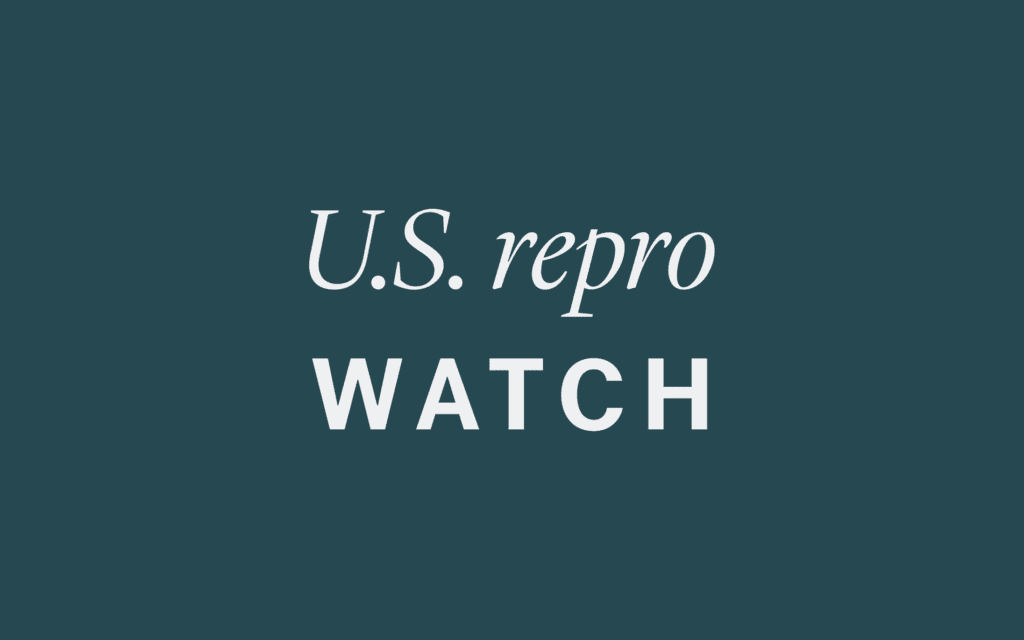U.S. Repro Watch, Feb. 22
This week's top 4 news items on U.S. reproductive rights.
“U.S. Repro Watch” provides periodic updates on news of interest on U.S. reproductive rights. Here are four recent items you won’t want to miss:
1. The Kentucky Supreme Court rejected a request to block two abortion bans on February 16, leaving abortion unavailable in the state while the case proceeds.
- The court had been asked to reinstate an injunction blocking the state’s trigger ban and a ban on abortion after six weeks of pregnancy.
- The justices clarified that their decision doesn’t “in any way determine whether the Kentucky Constitution protects or does not protect the right to receive an abortion,” sending the challenge back to a lower court.
- The court’s ruling comes three months after Kentucky voters rejected an anti-abortion ballot measure that would have amended the state constitution to clarify that it did not protect the right to abortion.
2. Members of Congress urged President Biden to take additional steps to protect abortion access.
- A group of senators, led by Sens. Elizabeth Warren and Mazie Hirono, sent a letter on Fenruary 13 outlining several ideas for the Biden Administration to consider to protect abortion access.
- The ideas include issuing guidance affirming patients’ right to travel across state lines for abortion care and removing abortion funding restrictions such as the Hyde Amendment from the President’s budget.
- The letter also highlights the need to protect access to medication abortion amid concern over a federal lawsuit that could ban the most common method of abortion.
More on abortion laws and policies in the states.
After Roe Fell: Abortion Laws by State
Explore this interactive map to learn more about each state’s abortion laws and policies, updated in real time.
3. Statehouses across the country are considering a range of ways to restrict abortion.
- Utah lawmakers introduced and advanced legislation that would ban the operation of all abortion clinics starting in January 2024.
- In Kentucky, a new bill proposes charging people with homicide for getting an abortion.
- The South Carolina House passed a total ban on abortion for the second time since Roe v. Wade was overturned.
- The Wyoming Senate is now reviewing legislation banning all abortion. The bill would go into effect if the state Supreme Court strikes down Wyoming’s existing trigger ban, which is currently blocked.
4. Six leading reproductive rights organizations launched the Abortion Defense Network to provide access to abortion-related legal services.
- Designed to help people navigate the confusing and hostile post-Roe legal landscape, the Abortion Defense Network will provide answers to questions about legal rights, locating abortion care, and finding funds for legal and other expenses. Read more here.
- Explore the Abortion Defense Network here.
Coming Up
February 24: Briefing due in Alliance for Hippocratic Medicine v. FDA, a lawsuit that could end access to abortion medication nationwide.
- In this case brought by anti-abortion groups seeking to have abortion medication removed from the market, the judge has issued an order extending the briefing deadline to February 24—after which the court could issue its decision.
March: Women’s History Month
- The right to abortion has played a critical role in the progress women have made towards gender equality in the U.S. “The Link Between Abortion Rights and Gender Equality,” a piece in U.S. News, reports on an analysis that found that the best states for gender equality are the same ones that protect abortion access.
U.S. Repro Watch
Read previous U.S. Repro Watch posts.
March 2: Hearing on Louisiana’s trigger ban.
- The Louisiana Court of Appeal will hear arguments over an injunction that blocked the state’s three trigger bans. Although a lower court issued the injunction in July 2022, it was suspended while the state appealed. The bans have now been in effect for more than six months.
- Abortion providers are asking the appellate court to uphold the injunction. Louisiana doctors have argued that the state’s overlapping bans have created utter confusion about how to do their jobs, putting them at risk of jail time for providing essential abortion care.
Did you know?
A new report from Human Rights Watch (HRW) details how abortion access for young Floridians is often denied by judges in the state. In 36 states, young people seeking abortion services are forced to either get parental consent or get permission from a court—an often lengthy and invasive process known as judicial bypass.
In Florida, more than 12% of young people’s requests to have abortions were denied by judges in 2020 and 2021. Hillsborough County, home to the city of Tampa, rejects a greater number and proportion of petitions than any other county in the state. In 2021, county judges denied half of all petitions filed there.
Judges in the state were found to make such decisions based on arbitrary factors such as one’s grades and behavior during a hearing. In one case, HRW found that a young person’s “soft spoken and shy” demeanor was a factor in denying her access to abortion care.



